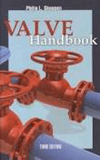Merrifield: no need to panic about EC
Industrial-PVF distributors who have not yet jumped into electronic commerce are not facing imminent obsolescence. At least that's the opinion of Bruce Merrifield, who was the featured speaker at two workshops at last month's American Supply Association convention in Chicago. ASA's Industrial Piping Division sponsored the sessions.
Merrifield explained that until a majority of buyers and sellers use electronic commerce, the technology cannot replace existing ways of doing business. He compared EC to the first fax machines: They were useful only if the party at the other end had a fax machine to receive the message.
"Physical fulfillment is forever," he said. "Until they can figure out a way to beam a pipe over the Net, people will still be shipping truckloads."
Merrifield also noted the high cost of providing the same kind of information to a business-to-business trading partner as most consumers have become accustomed to finding almost instantly. He recalled the problems faced by Citibank when it tried to blanket its market with proprietary automatic teller machines to attract "yuppies" and reduce the number of branches and tellers. The public didn't react to the machines the way Citibank hoped, however, despite huge amounts of money invested in the program.
"It turned out that the costs of maintaining the ATMs were more expensive than tellers," he said. "Citibank may have gotten a few new customers, but the costs killed the bottom line."
Web order-entry systems (perhaps aptly nicknamed WOES) may lead down a similar path, Merrifield said. Such systems are expensive to establish, but they are not likely to attract much new business. He identified some of the hazards to successful implementation of WOES:
- Full-time purchasing agents are unlikely to use WOES because they already have systems in place.
- B2B sites deal with more complex orders due to special pricing and special orders.
- It may be difficult for the smallest customers to use the system, but they are the ones wholesalers should target.
"What percentage of your customers will actually use the service?" he asked. "Are you running the risk of losing a lot of money to provide the service to relatively few customers? Is it worth it?"
Another problem PVF and other wholesalers face is the necessarily limited number of products available through Internet ordering. Merrifield said that it's almost inevitable that buyers may be able to find six or seven items they need on the supplier's Web site, but other products they need won't be listed. So if the buyers have to call the supplier anyway, they figure why bother with the Internet at all.
"People go to the Net for instant satisfaction," he said. "They don't want to get all excited about a product only to be told they have to wait and buy it at a local store."
Merrifield warned his audience against complacency, however. "Over the next five years, we're going to have to come up with a whole new vision of how we use information in our businesses."
Looking for a reprint of this article?
From high-res PDFs to custom plaques, order your copy today!








